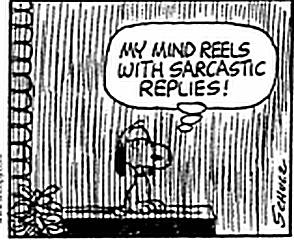"… negative or unkind fictitious reviewers were seen as less likeable but more intelligent, competent and expert than those who expressed the the same messages in gentler ways."In other words, when writing book reviews, there may be some payoffs for being an asshole! Being flip, clever, or sharp in your review carries a secondary gain in creating an image that you are more intelligent.
As a matter of fact, this can also pay off in terms of the job market. In magazines with book (or movie) reviews, readers pay more attention to clever, entertaining reviews. And publishers will see this as increasing sales, in the long run.
There's one problem: If too many reviewers follow this ploy, then their acidic reviews do not stand out as much in relationship to the others. The contrast effect is muted.

I wonder if that also applies to movie reviewers as well. They can be particularly waspy. It's a shame; the review process becomes not about the book but how clever the reviewer can be. Is this postmodernism in action?
ReplyDeleteAngel makes a good point. If I'm on the fence as to whether or not to pay money to see a movie, and the reviews are nasty, I'll usually assume the film is better than the reviewer thinks and go to see it. Similarly with books. I get turned off by reviews that appear to be gratuitously negative, and will often read the book just for spite.
ReplyDeleteI don't know that I've ever paid attention to a book review. I usually get my reviews from friends.
ReplyDelete